GOHA Student Spotlight – Kaylin Lewandowski
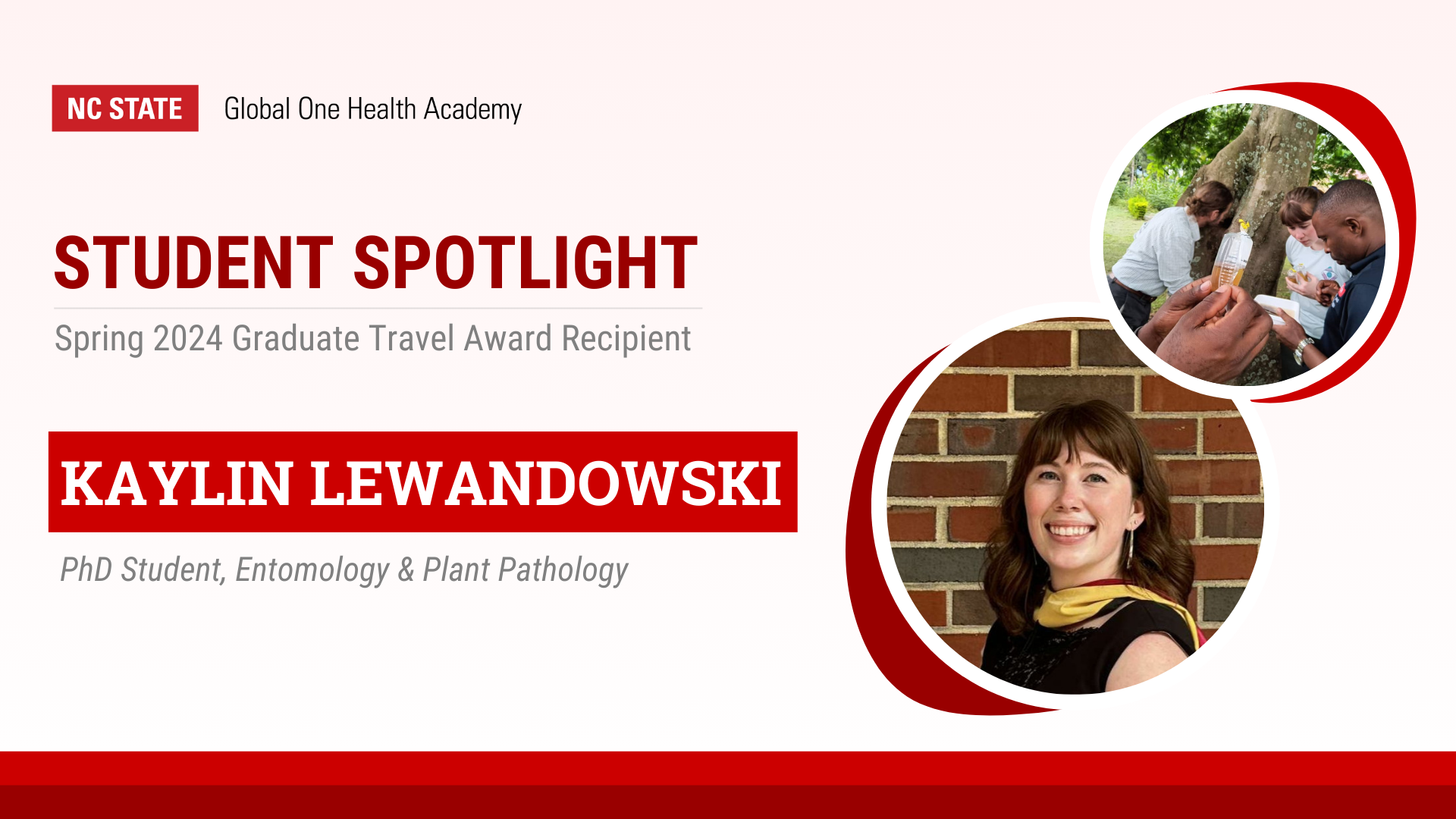
Offered twice a year, the Global One Health Academy Graduate Travel Awards support graduate students for international or domestic travel that advances their global One Health-related research. Kaylin Lewandowski, Ph.D. student in Entomology and Plant Pathology, was a recipient of the Spring 2024 Graduate Travel Awards, where she traveled to Uganda. Learn more about Lewandowski and how the Global One Health Academy has helped support her research on malaria incidence in the East African Country through her featured spotlight below!
What do you study? What/who inspired you to pursue this field of study?
I am currently a doctoral student studying entomology in the Department of Entomology and Plant Pathology at NC State University. I believe several people really inspired me to work in this field. In high school, I had a teacher with a background in freshwater biology, and he really liked freshwater macroinvertebrates. If you’ve ever picked up a rock from a river and flipped it over to see these small, almost slimy looking things, those are macroinvertebrates! At the time, I didn’t realize they were often immature insects, I just thought they were unique. From there, that same teacher showed me what an insect collection looks like and the preservation of insects on pins.
I then carried that interest with me into college, where I met a master’s student who was a teachers assistant for one of my biology labs and provided me with an opportunity of being his research assistant for his thesis work. This was my first exposure to working with mosquitoes, and I learned so much about them during that first summer. Forming that professional relationship with him was extremely impactful. He helped connect me with his advisor, who had a tremendous influence on where I am at today. This professor taught me so many of the basics of what entomology is, including how to be a scientist, how this field can impact people, along with a multitude of other lessons.
This professor connected me to my current advisor when I was finishing my bachelor’s degree and looking for a master’s position. My current advisor has been a constant inspiration and supporter of my potential as a entomologist. He has granted me so much freedom and many opportunities to explore my interests, to shape my academic career to fit who I am, while also building a professional friendship and mentorship that I really cherish. His mentorship has expanded my passion for entomology and helping people through my work, but also learning about the logistics of academia, mentorship, and what is important to me in my career. Each of these individuals have played a pivotal role in my career, and are constant inspirations for my journey in this field, even to this day.
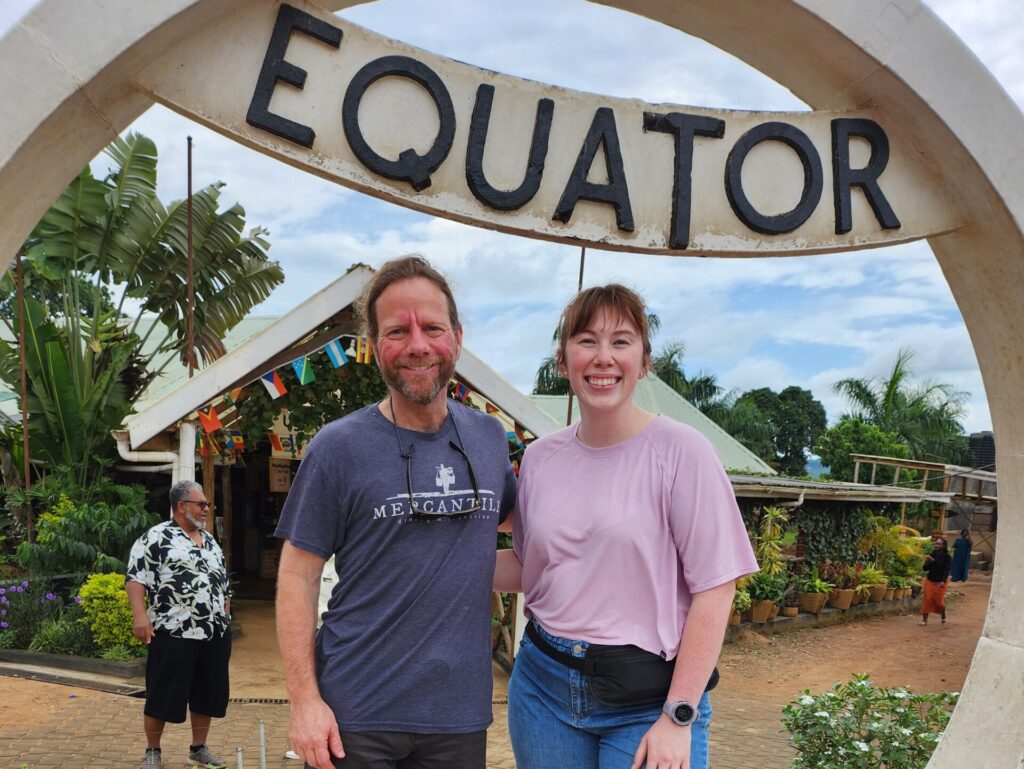
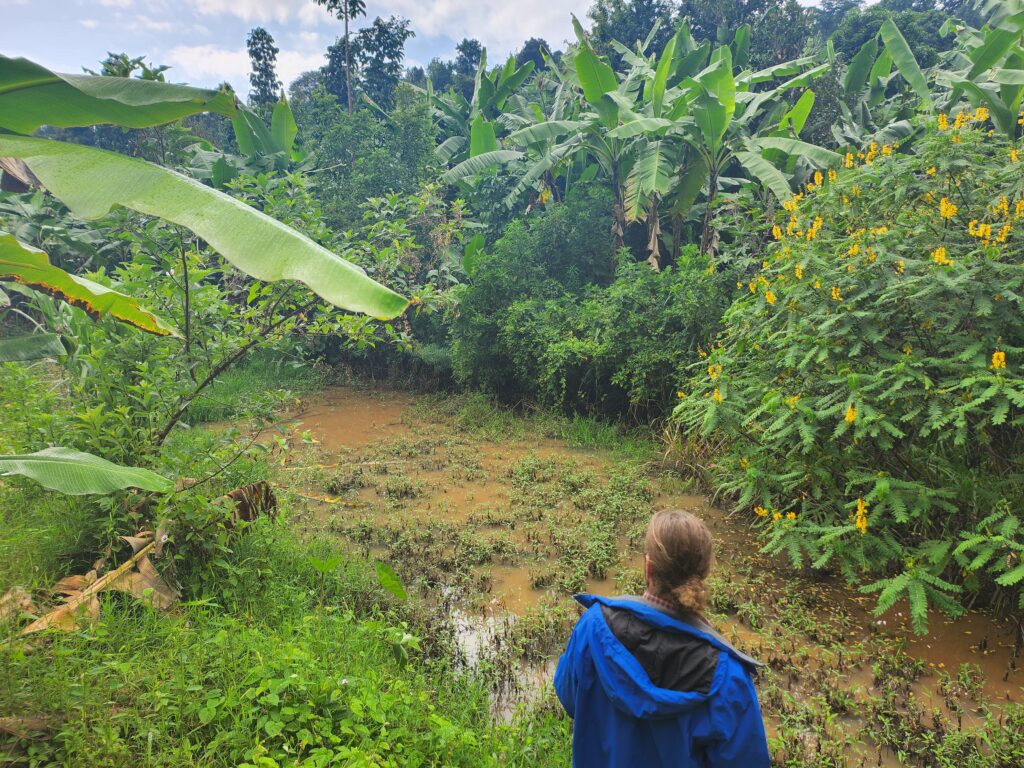
What are the implications of your research, and how does it fit into the One Health framework?
I am funded on a NIH project focused on the impacts of flooding on malaria incidence in Western Uganda. Uganda is located on the equator, therefore they experience only wet and dry seasons. The wet season obviously brings rain. In the region of western Uganda, there is a mountain range called the Rwenzori. Rainfall on the mountain rushes down, washing out rivers and villages, leaving behind suitable habitats for mosquitoes. This results in an increase in malaria incidence and thus burdens these communities. The NIH project is testing for malaria prevalence in people, collecting mosquitoes for vector abundance and the prevalence of sporozoites (the stage of malaria parasites that infect humans). This project also aims to study the social and economic burdens from flooding. Lastly, this projects aims to understand how much intervention – bed nets, Bti (larval mosquito insecticide), and chemoprophylaxis – is needed to combat this increase of malaria from these flooding events. Our team is a collaboration between several disciplines, including medical doctors, statisticians, entomologists, vector ecologists, public health professionals, and so on. With this project we have a massive coordination with the society in western Uganda, as we are interviewing households in these communities to gather our data. Through this coordination and communication we have provided an educational component that will first reach the communities we are working in. Through continued research, we hope to learn more about malaria prevention to then communicate with other regions, to improve the health of people and our environments.
Alongside this project, I have shaped my dissertation on projects to improve vector surveillance in lesser resourced countries. My research ranges from improving mosquito trap catches to assessing the biodiversity of mosquitoes in Uganda. I will continue to assess ground pools along the major rivers that flood and continue to explore the effectiveness of Bti in these habitats. My work is still in the early stages and is shaped to improve smaller aspects of what we know about vector surveillance and the mosquitoes of Uganda.
How did GOHA’s support help advance your One Health related research?
The support of GOHA was critical for where I am now. I was supported by a GOHA Graduate Travel Award, which granted me the opportunity to visit Uganda in May/June 2024, where I met collaborators and became familiar with the area I am now working in. This opportunity provided me the confidence to work internationally, explore what projects I could do and questions I could ask, while also expanding my knowledge as a researcher. Without this opportunity, I don’t know what stage I would be at in my Ph.D., and I wouldn’t be as confident in conducting the work that I am now.
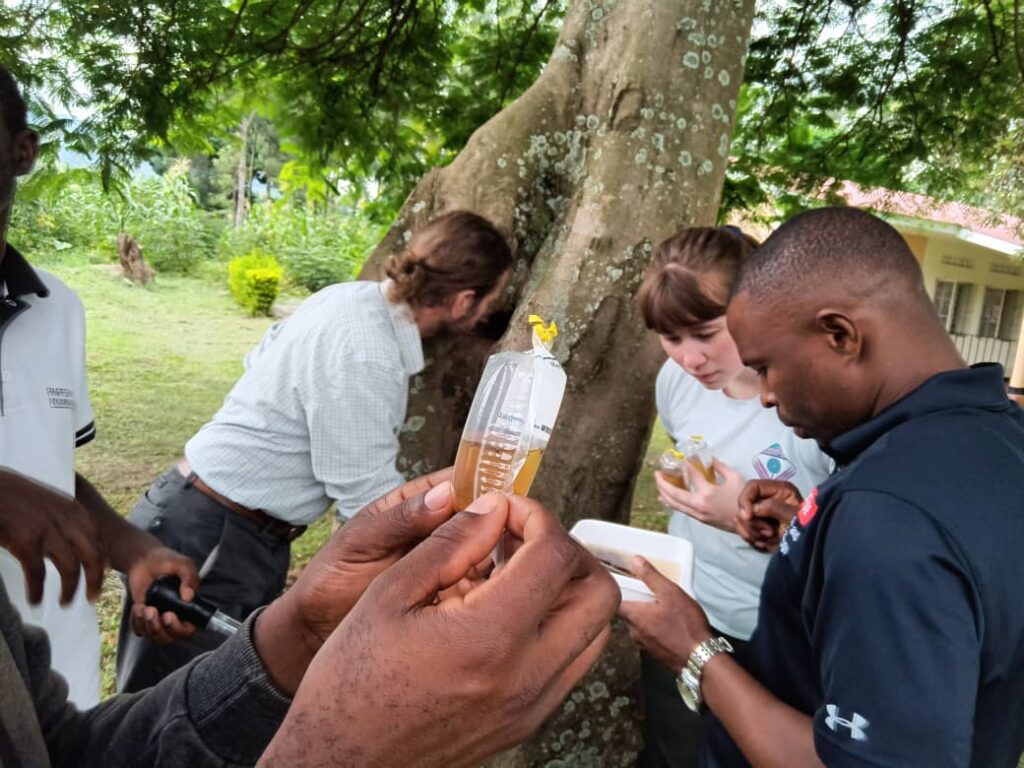
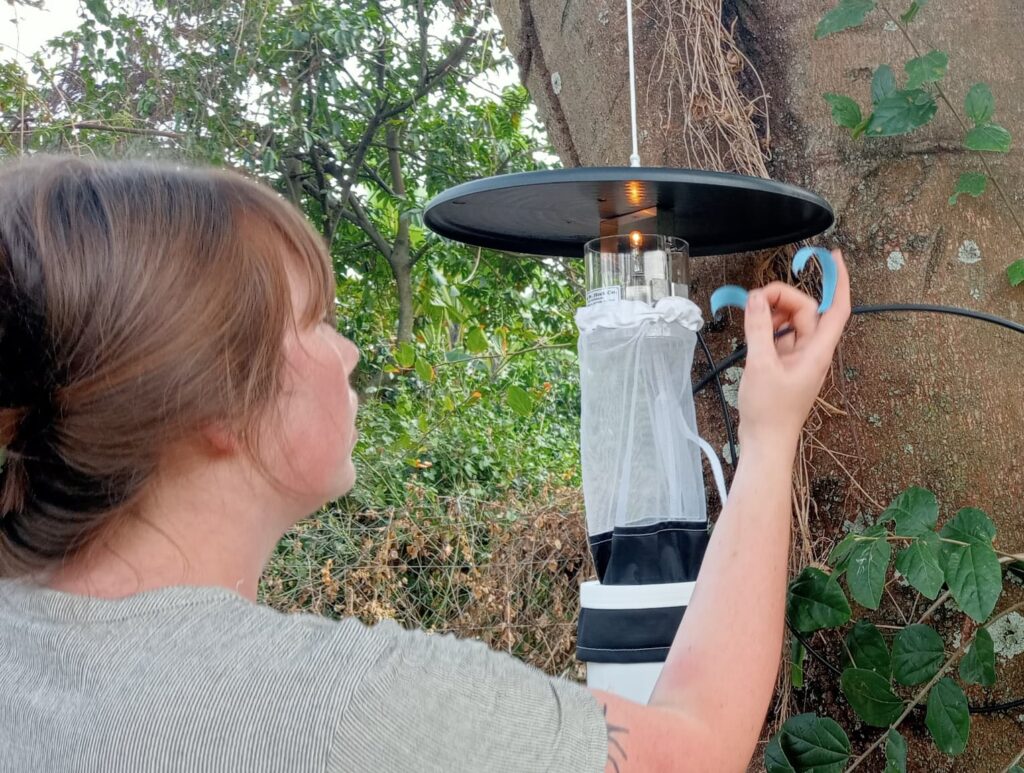
What was the most surprising thing you experienced as part of your travel to Uganda? Has conducting work in an international setting changed your research perspectives?
While we can ask the same questions, the way we answer these questions is vastly different in the United States and Uganda. This is really due to the differences in resources and logistics. Something as simple as buying dry ice, driving on a smooth paved road, or even being able to drive to the collection site differs between the two locations, so you’re having to rethink what you can realistically get done in the time you have and with the resources we have. The need to be resourceful promoted teamwork and necessitated strong communication skills to determine solutions together. Another aspect was the language barrier and background knowledge. While English is the official language of Uganda, my vocabulary and accent challenged me to focus on communicating clearly to our collaborators. One thing I truly appreciated from my collaborators is they stopped me when something wasn’t clear, and this improved my ability to communicate science clearly, which is something graduate students can struggle with. This skill is something that cannot be explicitly taught but rather gained through your own experiences, and I am beyond grateful for my experience. International work really challenges you intellectually, physically, and mentally, and I think it has made me a better researcher and person!
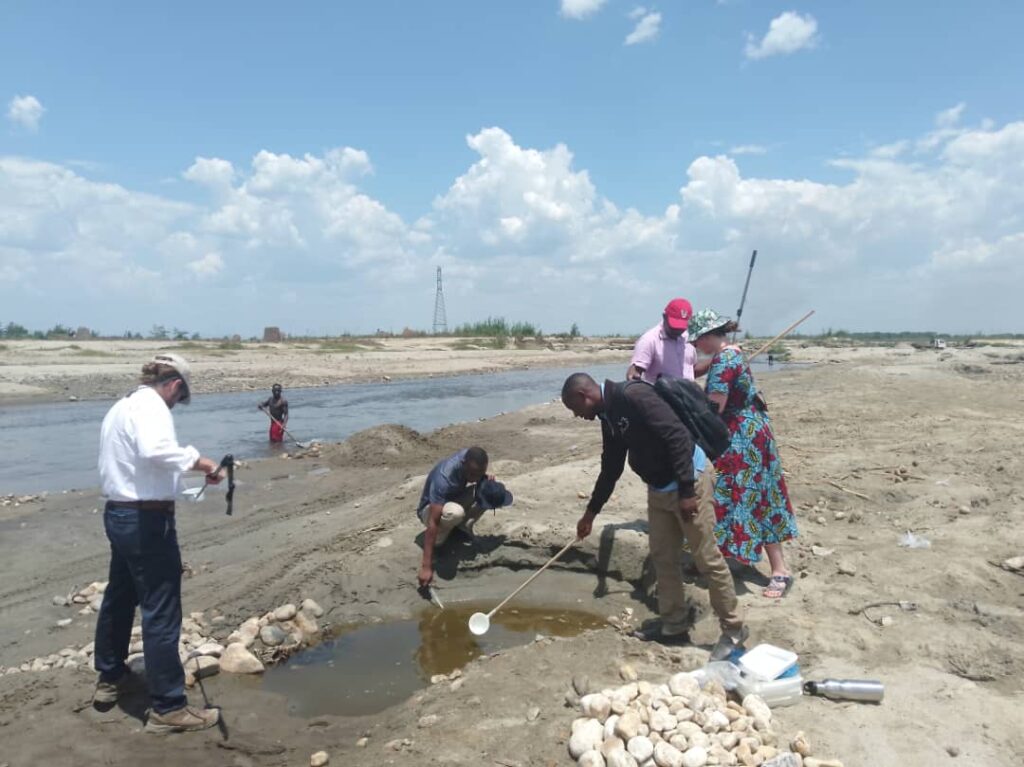
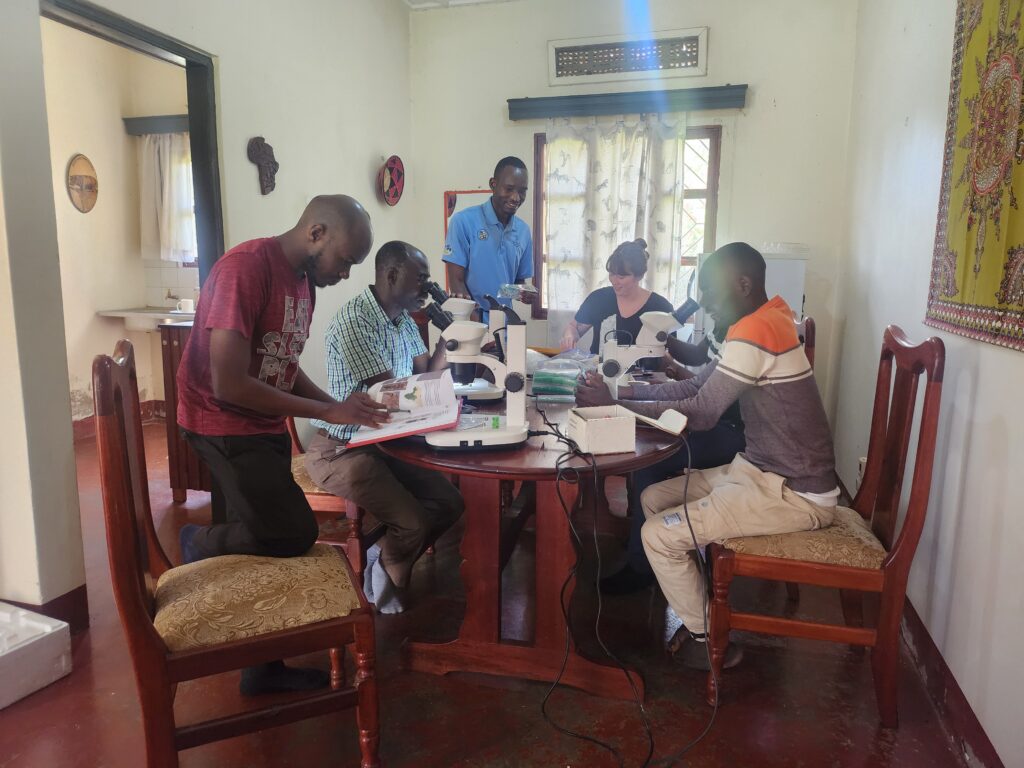
What are your future career plans? In what ways do you see your One Health experiences setting you up for success on this career path?
Having this opportunity has confirmed that I want to continue international work, improving the health of people and our environment, while also pursing my personal passion for mosquitoes and their uniqueness. My future career will have all of these aspects, but I am uncertain if that career will be in academia or in a nonprofit organization. I would be happy with either, and will learn more about what I want throughout my Ph.D., as I am only in my first year. This experience has refined my interests and passion, while broadening my skills, all of which will set me up for success after my Ph.D. The confidence I have now from this experience is perhaps the most valuable component for my future career!


